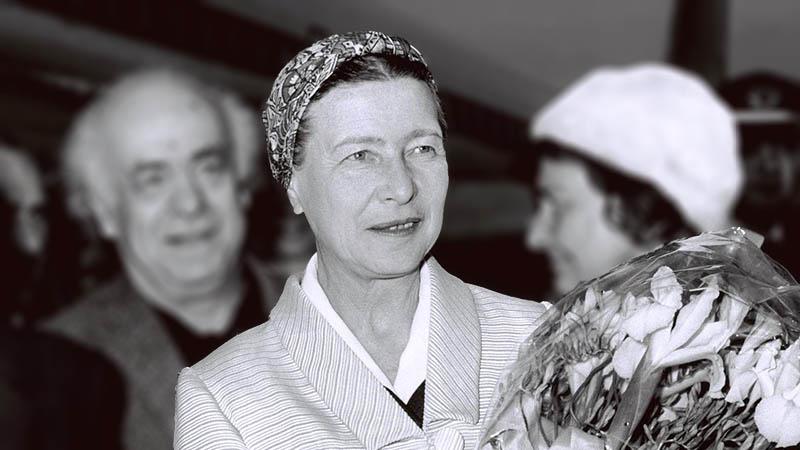The Second Sex—Simone de Beauvoir
Episode #5 of the course Women in philosophy by Will Buckingham
In the 20th century, women philosophers started to have a much more active voice in public debate, and for the first time, there was a substantial challenge to the male bias in philosophy. At the forefront of some of these challenges was French philosopher Simone de Beauvoir.
About Simone de Beauvoir
Simone de Beauvoir (1908-1986) wrote a huge range of works, including novels, social criticism, and philosophy. Her book, The Second Sex (Le Deuxième Sexe), published in 1949, is one of the most important works of feminist philosophy in the 20th century, and it has been hugely influential. De Beauvoir begins The Second Sex by saying she wants to write a book on women, a subject that is “irritating, especially to women.” Despite many debates about the social role of women, de Beauvoir says one question has not been sufficiently addressed: the question, What is a woman? De Beauvoir’s epic aims to answer this question.
What Is a Woman?
This “what is” question is what philosophers sometimes called a question about essence. We can give examples of different women, but what is it that actually makes a woman a woman? De Beauvoir says that it would not occur to a man to write a book asking, “What is a man?” because “man” is taken as an unproblematic term, equivalent with “human being.” “A man,” she says, “is in the right in being a man; it is the woman who is in the wrong.”
De Beauvoir’s point is this: Throughout the history of thought in the West, thinkers have often claimed to talk about man (that is, human beings in general), while in fact, they are really only talking about men (that is, male human beings). Humanity is seen as male, and men define women—in relation to this standard—as not-male. “Man,” de Beauvoir says, “is the Subject, he is the Absolute—she is the Other.”
Women, that is, are defined in relation to men; men are defined in relation to themselves. This secondary status of women lies at the heart of women’s subjugation. In perhaps her most famous quote, she writes that, “One is not born, but rather becomes, woman.” The essence of what it means to be a woman is defined by society. But if this is so, what it means to be a woman can change.
History and Society
De Beauvoir’s book is an ambitious attempt to explore the roots and implications of this secondary status. In the first section of the book, she looks at history and myth to trace the origins of how we think about gender difference. In the second section of the book, “Woman’s Life Today,” she turns to contemporary society to look at the structures that maintain this situation. Here, de Beauvoir’s insights are still relevant. She is in favor of an upbringing that treats boys and girls equally; she argues strongly in defense of abortion; she says marriage “mutilates” women, condemning them to routine and to domestic servitude; she argues strongly against monogamy—for much of her adult life, she was in an open relationship with philosopher Jean-Paul Sartre; and she holds out for the possibility of an equality of mutual recognition between men and women, where both have their own, independent existence.
De Beauvoir’s Legacy
De Beauvoir’s book was an immediate bestseller. It was widely translated, banned by the Vatican, and laid the groundwork for further developments in feminist thought. But as a work of philosophy, it also exposed the repeated tendency to equate the experience of humankind in general with that of men, opening up new ways of asking questions about the philosophical tradition.
Tomorrow, we are going to look at another philosopher who comes from the same philosophical tradition as de Beauvoir, Hannah Arendt.
Learn Something New Every Day
Get smarter with 10-day courses delivered in easy-to-digest emails every morning. Join over 400,000 lifelong learners today!
Further learning
Reading: Stanford Encyclopedia of Philosophy has an extended discussion on de Beauvoir as a philosopher
Video: Extended interview with Simone de Beauvoir
Share with friends

